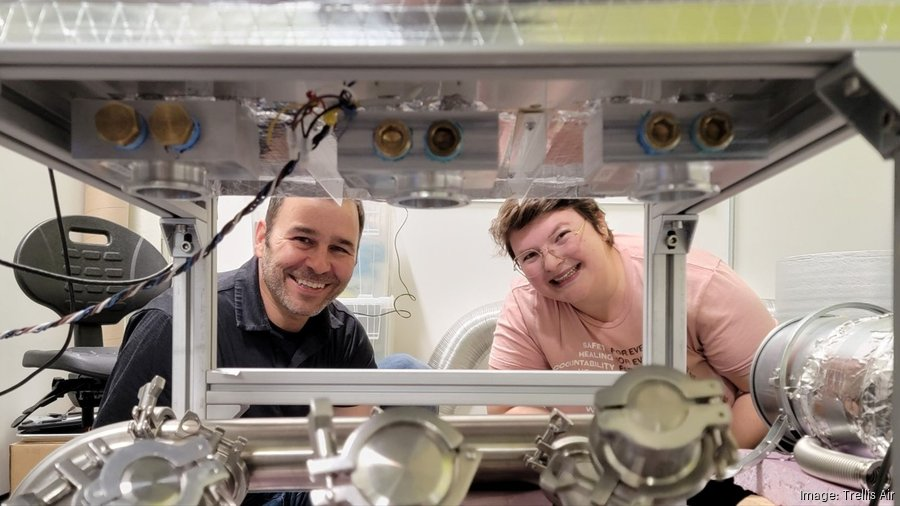Brain-computer interfaces (BCIs) are at the forefront of revolutionary technological advancements that promise to unlock new possibilities for human interaction and communication. This cutting-edge BCI technology allows users, especially those with disabilities, to control devices like computers and prosthetics merely by thinking about them, merging the human mind with digital systems in ways previously relegated to science fiction. For example, Neuralink’s brain chip has already enabled individuals to showcase extraordinary capabilities, such as playing chess and maneuvering a mouse using their thoughts alone. However, as we embrace the brain implant benefits these interfaces offer, we must also be mindful of the ethical concerns surrounding psychological manipulation and the potential for misuse of such powerful mind control technology. As the market for BCIs expands, projected to reach a staggering $400 billion in the U.S., it is crucial that we navigate these uncharted waters with an awareness of both their potential rewards and risks.
In recent years, the landscape of human-computer interaction has been transformed through groundbreaking innovations known as neural interfaces or mind-machine interfaces. These advanced systems allow seamless communication between the brain and external devices, paving the way for a new era of assistive technologies. One notable example is the Neuralink brain implant, which has demonstrated the ability for users to exert control over machines with mere thought. While these enhancements offer numerous brain implant benefits, there are rising concerns about the ethical implications of such advanced capabilities, particularly regarding the risks of psychological manipulation and the potential misuse of mind control technologies. As we advance into the future, the dialogue surrounding neural interfaces must balance the promise of enhanced cognitive abilities with the responsibility of safeguarding mental autonomy.
Understanding Brain-Computer Interfaces (BCIs)
Brain-computer interfaces (BCIs) represent a groundbreaking development in neurotechnology, offering new ways for individuals with disabilities to regain autonomy in everyday tasks. By connecting the brain directly to external devices, BCIs allow for control of computers, prosthetic limbs, and even assistive technologies solely through thought. This innovative approach, exemplified by Neuralink’s brain chip implant, has opened up immense possibilities for individuals who are paralyzed or have movement disorders, paving the way for major advancements in enhancing quality of life.
Moreover, as the market for BCI technology is projected to reach $400 billion in the U.S. alone, significant research and investment are anticipated. The potential applications extend beyond physical rehabilitation—BCIs could revolutionize communications for stroke victims or individuals with speech impairments, allowing them to express their thoughts and emotions accurately. However, as we embrace these advancements, it remains crucial to navigate the ethical landscape surrounding their deployment, particularly the issues of consent and privacy.
The Promises of Neuralink and BCI Technology
Neuralink, founded by Elon Musk, is at the forefront of BCI research, showcasing promising results with its brain chip allowing paralyzed users to control devices through thought. This innovative technology not only exemplifies the advancements in the integration of digital interfaces with human cognition but also demonstrates the profound benefits of brain implants. Users have reported remarkable improvements in their daily functions, such as operating a computer mouse and playing games, which indicate significant strides in restoring independence for those affected by severe physical limitations.
BCI technology brings various benefits, including enhanced accessibility, improved medical rehabilitation, and potentially life-changing outcomes for numerous patients. The therapeutic applications, particularly in providing benefits to those suffering from neurological disorders, are becoming increasingly evident. However, as researchers and developers explore these technologies, it is essential to approach the design and implementation of BCIs thoughtfully, ensuring that the primary aim remains focused on enhancing human capabilities without infringing on individual autonomy.
Ethical Concerns Surrounding Mind Control Technology
As the capabilities of brain-computer interfaces expand, ethical concerns regarding mind control technology have emerged. The ability to potentially manipulate human thought processes through BCIs raises significant questions about self-determination, consent, and mental privacy. Historical parallels drawn from past experiments related to psychological manipulation highlight the potential dangers of misusing such powerful technologies. The chilling legacy of programs like MKUltra serves as a cautionary tale, emphasizing the need for stringent ethical guidelines as development progresses.
The potential for psychological manipulation through advanced technologies, such as BCIs, could lead to unintended consequences. If these interfaces are hacked or misused, individuals could find their thoughts and behaviors influenced against their will. As BCIs continue to evolve, it is paramount to establish comprehensive regulatory frameworks that address these ethical dilemmas, ensuring that technological advancements serve to empower rather than exploit users.
The Impact of Psychological Manipulation from BCI Technology
The integration of brain-computer interface technology introduces the possibility of psychological manipulation in unprecedented ways, forcing us to reconsider the lines between control and autonomy. While BCIs offer extraordinary potential for rehabilitation and therapy, they also pose the risk of altering cognitive functions or behaviors in unforeseen manners. Research indicates that deep brain stimulation, a technique often associated with BCI applications, has been linked to unusual behaviors in some individuals—raising alarms about how such technology may inadvertently affect personal agency.
In extreme instances, the unintended consequences of BCI technology can lead to significant behavioral changes, such as in cases where patients have demonstrated impulsive actions that are completely out of character. The insights drawn from these cases underscore the need for caution and ethical considerations during the development of mind control technology. Proper safeguards should be established to monitor the use of BCIs and ensure that the technology does not inadvertently compromise the fundamental aspects of mental privacy and personal freedom.
Regulatory Framework for BCI Advancements
As we navigate the rapid advancements in brain-computer interface technology, establishing an effective regulatory framework is crucial to address the ethical and practical implications. Given the potential for misuse of BCI technology—especially concerning mind control and psychological manipulation—it is imperative that lawmakers and technologists collaborate to outline clear guidelines governing the use of such devices. The aim should be to protect individuals while fostering innovation, ensuring advancements in BCI technology improve lives without compromising human dignity.
Furthermore, regulatory measures should focus on maintaining transparent communication with the public regarding the risks and benefits associated with BCIs. By engaging with various stakeholders—including ethicists, technologists, and users—regulatory bodies can create policies that reflect societal values and concerns. This level of engagement will help in developing BCIs that genuinely enhance human capabilities while respecting individual rights and freedoms.
Global Perspectives on BCI Development and Ethics
The development and implementation of brain-computer interfaces differ significantly across various countries, influenced by cultural, ethical, and legislative factors. In regions like China, the use of BCIs has raised alarms, especially regarding implementations in schools aimed at monitoring student focus through brainwave tracking. This example illustrates the varying interpretations of BCI applications and the potential for misuse, highlighting the urgent need for internationally recognized ethical standards and regulations.
In contrast, countries like the United States are grappling with a balance between innovation and ethical responsibility. As private firms and government agencies invest heavily in BCI technology, attention must be given to fostering an environment that prioritizes ethical considerations alongside scientific advancement. International collaboration could lead to a more cohesive approach to the ethical challenges posed by BCIs, ensuring the technology serves humanity positively across diverse contexts.
Potential Applications of BCI in Healthcare
In the healthcare sector, brain-computer interfaces promise to transform patient care and rehabilitation. BCIs can facilitate remarkable advancements in treating neurological conditions, allowing patients to regain lost functions or to control assistive devices through thought alone. For example, individuals suffering from spinal cord injuries can potentially use BCIs to control prosthetics or even re-establish communication with those around them—creating truly life-changing outcomes.
Additionally, BCIs can be integrated into various therapeutic modalities for conditions such as epilepsy and Parkinson’s disease, where neuromodulation may lead to improved symptoms and improved quality of life. However, while the therapeutic potential is immense, careful consideration must be given to testing protocols and post-operative care to ensure patient safety and effectiveness. As we push the boundaries of BCI applications in healthcare, ethical frameworks must accompany technological advancements to safeguard patient rights.
Educational Uses of BCI Technology
Brain-computer interface technology is beginning to find its way into educational settings, where it can augment learning experiences significantly. By providing real-time feedback on students’ cognitive states, BCIs may enable personalized learning strategies that adapt to the individual needs of each learner. For instance, BCIs can help identify when students are struggling to understand a concept, allowing educators to adjust their teaching methods accordingly, thus enhancing the overall educational experience.
However, the introduction of BCIs in education also raises ethical concerns, particularly regarding privacy and consent. Monitoring brain activity in students can lead to significant implications for how educational data are utilized. It is essential that educators and policymakers work together to establish ethical guidelines for implementing BCIs in schools, ensuring that they benefit students without infringing on their rights to privacy or choice. Such discussions will shape the future of education and the role that cutting-edge technology plays in student learning.
Future Outlook for BCI Technology
The future of brain-computer interface technology holds immense promise, with ongoing research and innovations heralding a new era in human-computer interaction. Emerging applications suggest that BCIs could expand far beyond medical uses, potentially enabling seamless interactions between humans and machines. As we develop increasingly sophisticated interfaces, the lines between physical and digital realms may blur, creating new forms of communication and interaction that were once deemed science fiction.
Nevertheless, the path forward must be guided by a commitment to ethical responsibilities. As the technology matures, it is critical that developers engage with ethicists, social scientists, and the public to ensure that BCIs evolve in a manner that emphasizes human well-being over mere technological capability. The successful integration of BCI technology into society will largely depend on our ability to navigate the ethical and regulatory challenges it presents, ensuring that we maximize its benefits while minimizing potential risks.
Frequently Asked Questions
What are brain-computer interfaces (BCIs) and how do they work?
Brain-computer interfaces (BCIs) are advanced technologies that create a direct communication pathway between the brain and external devices. By interpreting brain signals, BCIs allow users to control computers, prosthetic limbs, or other devices using their thoughts. This technology shows potential for assisting individuals with disabilities and could revolutionize interaction with machines.
What are the potential benefits of brain implants like the Neuralink brain chip?
The Neuralink brain chip and other brain implants offer benefits such as enabling individuals with paralysis to control computers or prosthetic limbs effortlessly. Furthermore, BCIs can facilitate direct thought translation into speech, enhancing communication for those with disabilities and opening new avenues for rehabilitation.
Is there a risk of psychological manipulation with mind control technology?
The concern surrounding mind control technology, especially as it relates to BCIs, involves the potential for psychological manipulation. While current uses of BCIs focus on therapeutic applications, their advanced capabilities raise ethical questions regarding consent and mental privacy, reminiscent of historical mind control experiments during the Cold War.
What ethical considerations surround the development of BCI technology?
The development of BCI technology presents ethical considerations, particularly regarding consent, privacy, and the potential for misuse. As BCIs become more capable, there is a risk that they could be employed for psychological manipulation or unauthorized behavior alteration, prompting the need for robust regulatory frameworks to protect individual rights.
How might brain-computer interfaces impact the future of communication?
Brain-computer interfaces could dramatically alter the future of communication by allowing for direct communication through thoughts alone. This innovation could enable those with limited speech abilities to express themselves easily and could lead to new forms of interaction that eliminate traditional barriers.
What are the current limitations of brain-computer interface technology?
Currently, brain-computer interfaces are limited by their reliance on invasive methods, varying user control effectiveness, and the need for extensive training. Additionally, ethical concerns and regulatory challenges may slow their adoption, despite the significant potential benefits and market growth indicated for BCI technology.
Can brain implants enhance human capabilities beyond medical applications?
While brain implants like those associated with BCI technology are primarily developed for medical purposes, there is potential for enhancements that could extend cognitive functions and sensory perceptions. However, such applications raise complex ethical and safety questions about human enhancement technologies.
What is the market potential for brain-computer interfaces in the U.S.?
The market potential for brain-computer interfaces (BCIs) in the U.S. is substantial, with estimates suggesting it could reach around $400 billion. This growth is driven by the increasing prevalence of neurological conditions and the demand for innovative solutions to assist those with disabilities.
Are there any historical examples of mind control technology misuse?
Yes, historical precedents such as the CIA’s MKUltra program highlight the misuse of mind control technology, where unethical experiments were conducted to manipulate human behavior. This cautionary history underscores the importance of ethical considerations in the development of modern brain-computer interfaces.
What role does consent play in the use of BCI technology?
Consent is a pivotal aspect of BCI technology, as users must fully understand the implications of brain implants and their potential impacts on mental privacy and autonomy. Establishing clear consent protocols is essential to prevent exploitation and ensure respectful use of this transformative technology.
| Key Points | Details |
|---|---|
| Introduction of Brain Chip | Nolan Arbaugh became the first to receive a brain chip implant from Neuralink, enabling him to control a computer mouse with his mind. |
| Potential Applications | BCIs can help paralyzed individuals, control prosthetic limbs, operate computers, and translate thoughts into speech. |
| Market Potential | The market for BCIs could reach around $400 billion in the U.S. due to high disability rates. |
| Cautions from History | A discussion paper warns that BCIs may have parallels with past mind control experiments, notably during the Cold War. |
| MKUltra Background | The CIA conducted MKUltra, an experiment on mind control, leading to severe consequences for subjects. |
| Ethical Concerns | Issues of self-determination, consent, and mental privacy are raised concerning BCI technology. |
| Behavior Modification Risks | Research shows BCIs could unintentionally alter behavior or induce manic symptoms. |
| Support for Development | Despite concerns, continued development of BCI technology is advocated to counter global adversaries. |
Summary
Brain-computer interfaces (BCIs) represent a transformative technology with the potential to radically enhance human capability, particularly for individuals with disabilities. As evidenced by recent developments like the brain chip implant received by Nolan Arbaugh, BCIs could revolutionize interaction with technology and improve quality of life. However, amidst the excitement lies a cautionary tale from history, reminding us of the ethical implications and risks associated with such powerful technologies. The echoes of the past, illustrated by programs like MKUltra, highlight the need for rigorous ethical standards to prevent misuse. As advancements continue, society must navigate these challenges carefully to harness the benefits of BCIs while safeguarding ethical integrity.







